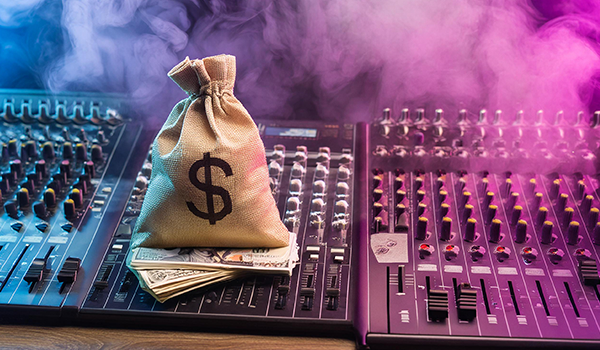The Importance of a Music Producer
Every great song begins with an idea. Whether it’s a melody that pops into your head, a powerful lyric, or a specific emotion you want to convey, it all starts by collecting these fragments of inspiration and blending them into a recorded song.
While many artists can bring these components together on their own, an experienced set of ears can often help transform a musical idea into a brilliantly-crafted hit song.
Producers do more than just offer musical suggestions; they mentor artists to deliver their best performances and capture it all in a recording.
Types of Music Producers
No two producers are exactly alike. Some are more "hands-on," composing music, writing material, arranging it, scheduling session musicians, booking the recording studio, and matching lyrics and melody to the right singer.
These producers might even own record labels and sign artists to "production deals," which differ from when an artist hires a producer (more about that in our Understanding Producer Agreement course).
In most situations, a music producer is carefully chosen by an artist to guide them through the recording process and steer them in the best direction both commercially and artistically. That’s the classic definition of a music producer.
Understanding Different Producer Roles
At the end of this article, you'll find a FAQ section that quickly answers the most common questions musicians have about finding, hiring, and paying a music producer, as well as further details about producer agreements. This will provide you with a better understanding of the process and help you make informed decisions.
The role of a music producer
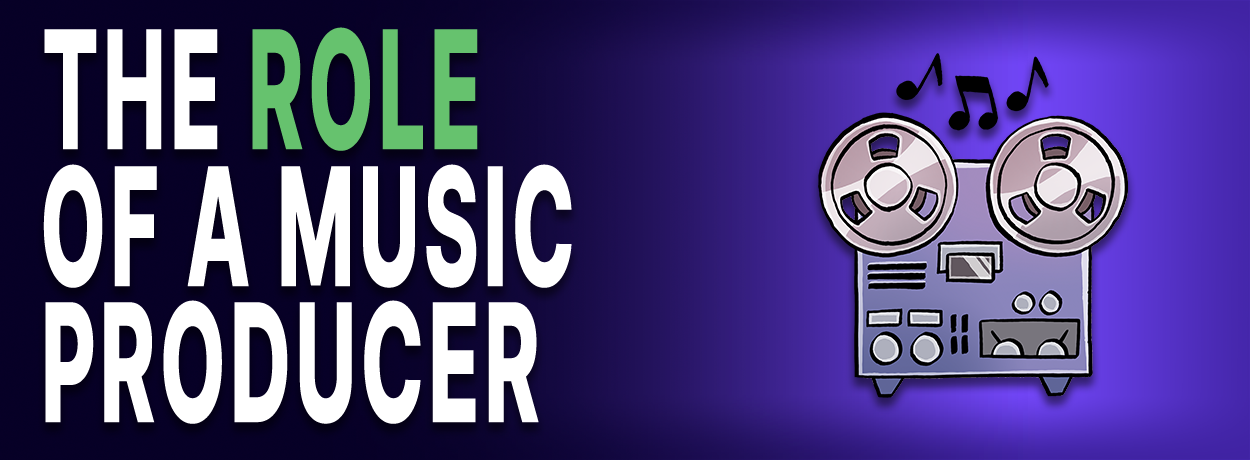
Again, different producers bring different things to the table, some take on more responsibilities than others, but all music producers play a pivotal role in the sound and quality of songs and albums.
They are also responsible for the final master recordings, ensuring the highest quality sound for the final product.
Their duties typically involve overseeing and guiding recording projects, shaping the sound to help bring an artist’s vision to life, and keeping the sessions on budget.
The final produced music often reflects the producer’s unique style and expertise, ideally contributing to the success of the final result.
From pre-production rehearsals to booking and directing recording sessions to supervising the intricacies of mixing and mastering, the ideal music producer is both a creative force and a technical expert within the music industry.
Choosing the right music producer
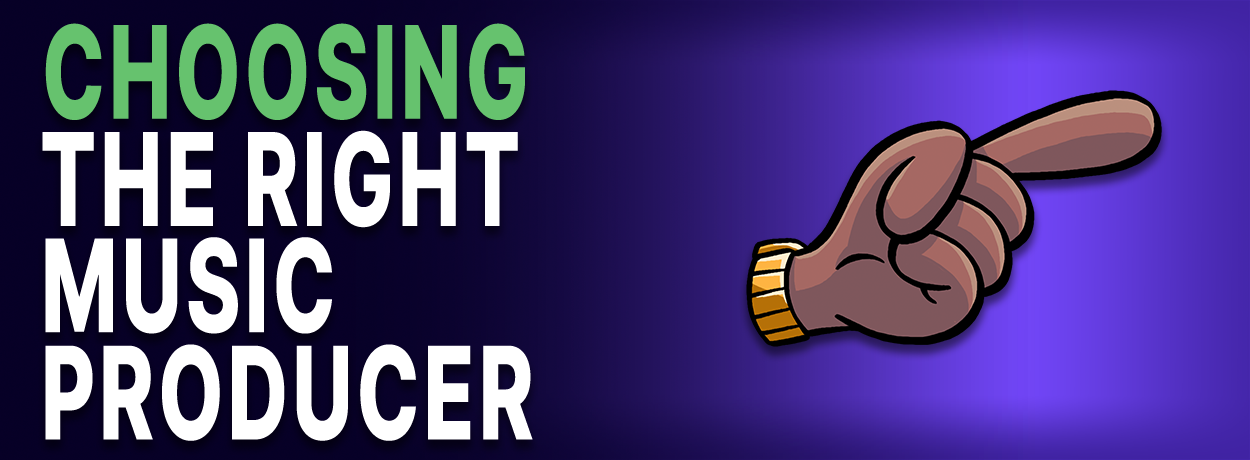
Now that we’ve discussed who a music producer is and what they do, the next step is to find and hire a producer who is the ideal fit.
When an artist is signed to a major record company or label, their label will often have ideas about who should produce them.
Sometimes the label’s suggested producer will be perfect for their artist, other times less so, but when push comes to shove, it’s really the artist who should be making these calls. Major record companies often have established relationships with top producers, which can influence these decisions.
When an artist can’t see eye-to-eye with their producer, it often bodes poorly for the final product – however, it should be noted that some very successful records have resulted under this difficult dynamic, but that’s more the exception than the rule.
If your music leans towards genres like hip hop, R&B, or EDM, finding a producer with expertise in these areas is a wise idea. This basically applies to all genres.
For example, you probably don't want a producer who built their rep with EDM producing your garage punk album.
But who knows? At the same time, maybe you'll really see eye-to-eye with that EDM producer and together create something truly unique and wonderful.
Ultimately, everyone should be happy with the final choice of producer; the artist, their management team, the record label, and, of course, you want the chosen producer to be genuinely excited about the project too.
Hiring an established "big name" producer
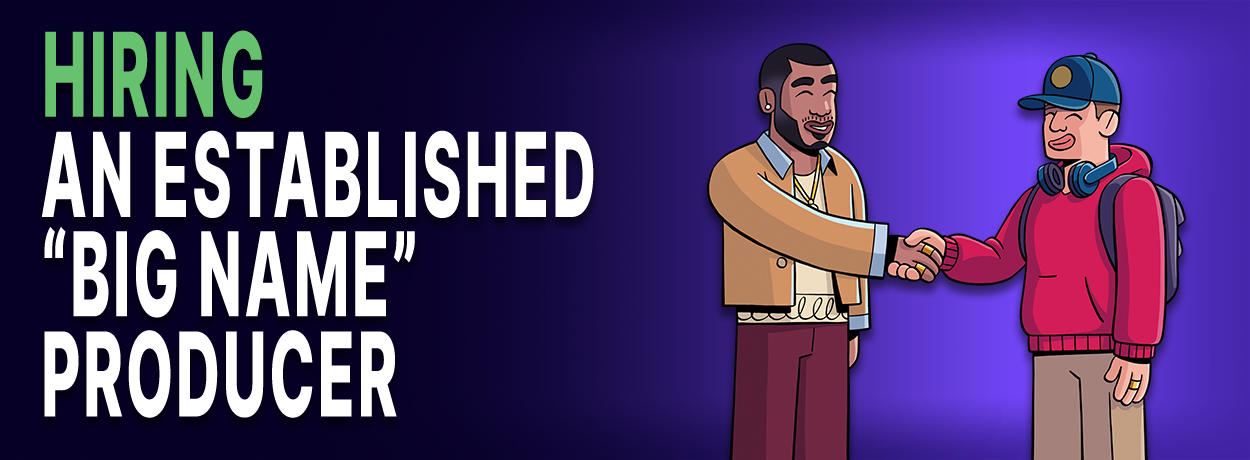
Now keep in mind that top music producers with recent hits under their belts can typically pick and choose who they work with. They have their own reputations to consider, and don’t want to work with an artist they feel might drag their hard-earned reputation into the gutter.
But unless your sound and commercial potential is so exceptional that everyone who hears your material instantly wants to work with you, you won’t likely find a big-name producer prepared to take your records on until you have a track record yourself - although there can be exceptions to this rule too.
For example, if you have a billionaire investor behind you willing to pay the producer outrageous sums of money in exchange for working on your music.
Or, of course, if the established producer discovers your music, thinks you’re the greatest thing ever, and wants to sign you to a production deal.
But again, that’s a totally different kettle of fish from a business perspective. (for more info on that, see Understanding Producer Agreements).
Find a producer who inspires you
I’m going to go out on a limb here and suggest that’s not likely your situation. At the most basic level, most artists will just be looking for a producer whose prior releases have inspired them, or have a certain sound or feel to their work that they want to emulate on their own recordings.
Sometimes, an artist will simply meet the producer socially (or through social networking) and they’ll immediately share a great vibe, with both parties instinctively knowing that they could create something special together. It happens.
All to say, finding and choosing the right producer depends on many factors, your recording budget for one. The strength and influence of the business team you have behind you is another.
And, of course, the strength of your music and the producer’s availability are other obvious considerations.
But as an artist, of primary importance when choosing a producer is the vision you have for your musical project.
Is it inspired by a specific genre, artist, or song? Who produced that material? If it was a superstar producer you won’t likely be able to hire, who else is producing music in that style or genre that you like?
Maybe there’s an up and comer who will immediately be inspired by your material and be thrilled to produce it for you at a rate you can live with? Perhaps they’d be prepared to produce you on spec?
Asking yourself these questions will help you focus in on the producer who specializes in the sound you’re seeking for your recording.
Contacting your ideal music producer for recording sessions
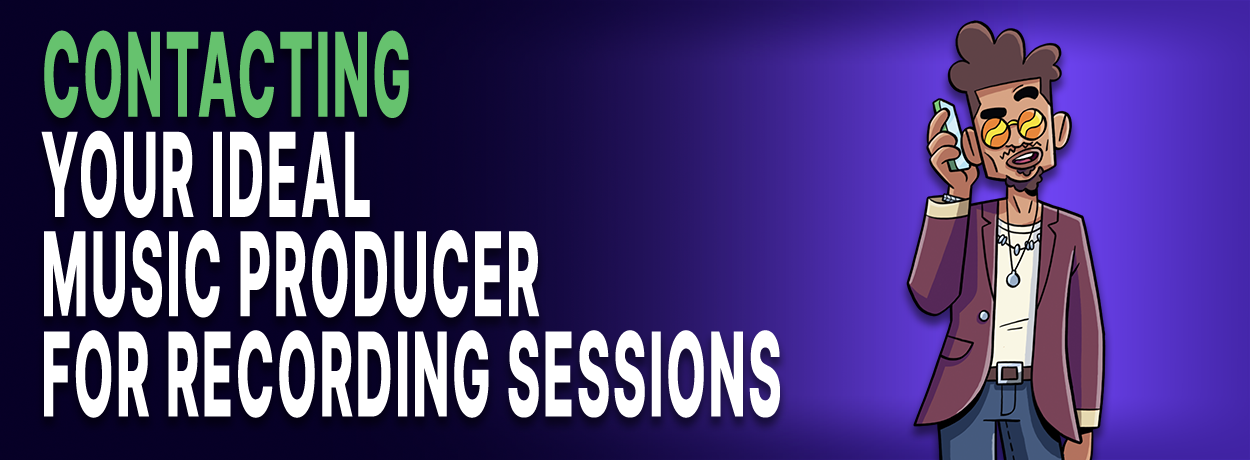
Networking to Find a Producer
So let’s say you’ve now settled on four or five producers you like and who realistically might be prepared to work with you. Now you need to get in touch with them.
Go online and see who represents them. Reach out to their agent, lawyer, or manager, explain your project and what you’re looking for from their client, and mention the budget you have for the recording. You’ll be able to tell right away if there’s a serious chance of hiring them. There might not be.
Sometimes you’ll be able to reach out to the producer directly. Many producers represent themselves and always have an eye out for promising new talent.
Start by reaching out to their social media channels/profiles. With a little perseverance, in theory you should be able to reach pretty well any producer who realistically would be interested in working with you.
Working with Up-and-Coming Producers
If you don’t have a big recording budget, are largely unknown and unlikely to secure a “big name producer” for your project, your own network can be a great resource for finding the right person for the job.
Musicians in your immediate circle may have someone they can recommend and connect you with directly. There are also online platforms like Soundbetter.com, that exist to bring producers and artists together. Look there as well.
Keep in mind, most up and coming producers (all pop music producers, really) are just as eager to find promising talent to produce as you are in finding them.
Just because someone doesn’t have a big reputation – yet – certainly doesn’t mean they have nothing to bring to the table. They’re all looking for interesting and/or hit acts to produce, and you might be the perfect artist for them.
All this to say, the perfect producer for your project depends on a multitude of factors, not strictly how many recent hits they’ve had. Follow your gut.
Paying your music producer
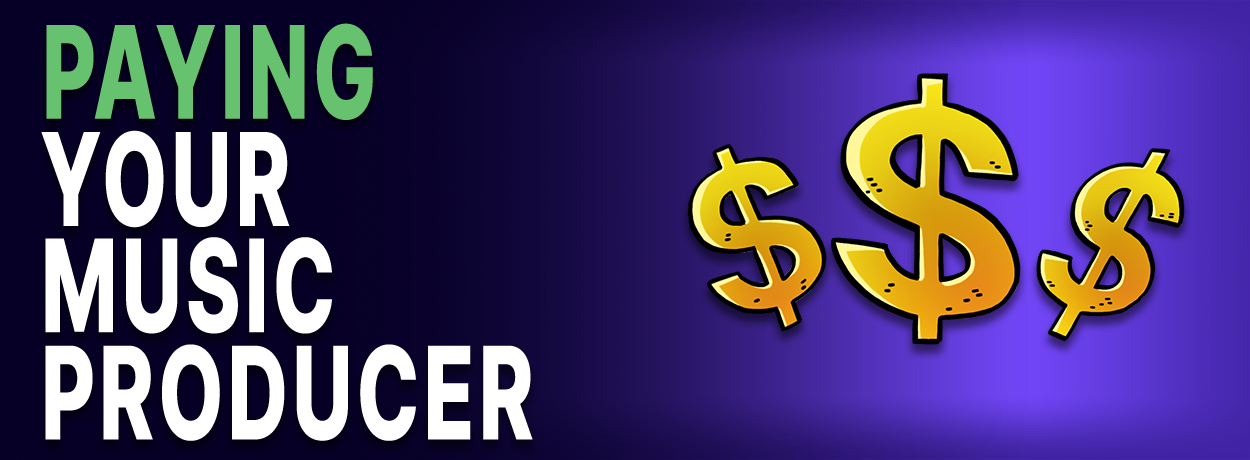
When hiring a music producer, it's essential to understand the costs involved. Music producer rates can vary significantly based on factors such as the producer's expertise, experience, geographical location, and current market conditions. Understanding these rates will help you to budget more effectively and ideally ensure you get the best value for your investment.
Budgeting for a Producer
Of course, few things in this world come free – and producers are no exception. It can be expensive to hire a producer, but it doesn’t have to be.
Much depends on the producer themself. If you’ve found a talented up and comer you feel good about, and they also feel good about you, you might be able to come to an arrangement where you only pay the producer a royalty, or a percentage of future sales/streams from your record, and skip paying an upfront fee altogether.
You’ll probably be paying them a higher royalty rate with such an arrangement, but if the end result of your collaboration is a big success that establishes you as an artist to watch out for, it will have been well worth it. It’s all a negotiation.
Producers are typically paid either a flat fee, or a royalty or net profit share - that may or may not come with a cash advance.
The bottom line is, should you and the producer want to work together badly enough, you’ll find a way to make it happen.
After all, as the old expression goes, there are many ways to skin a cat (or something to that effect).
Now you need a music producer contract template
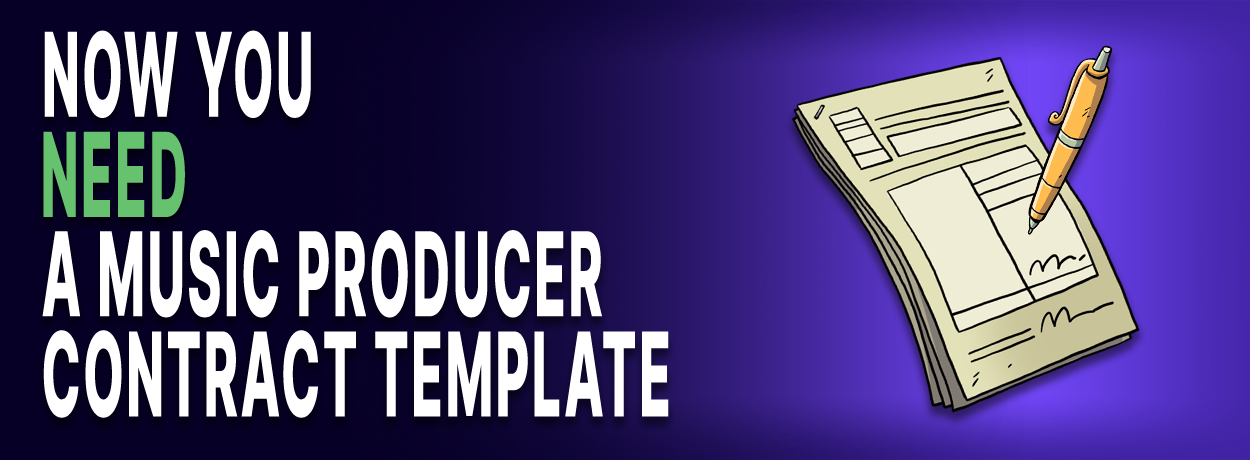
Once you’ve settled upon a producer and they’ve expressed interest in working with you, the next step is to enter into a producer agreement with them.
This agreement is uber-important as it, among other things, establishes your working relationship in a way that protects both the artist and producer from legal hassles down the road. Music producer contracts are essential in the evolving music industry, ensuring clear agreements and ownership during different stages of music production.
Your producer agreement will detail what and how the producer will be paid, when they will be paid, who will own what percentage of the final produced recording(s), how co-written songs will be divided, how the producer will be credited, and…well, truth is, the list of items addressed in a producer agreement may feel endless sometimes, but every clause is there for a good reason, and you’ll be far better off if you understand what you’re giving - and will be getting - from your collaboration.
Legal Considerations in Producer Agreements
As with every contract you sign in the music business, you need to understand your producer agreements.
Yes, I know what you’re thinking. Where do I even get a producer agreement? From an entertainment lawyer?
Well, yes, you could conceivably do that, but if you don’t live in a city with a thriving music business, are there even any music lawyers in your town? There might not be.
Plus, music lawyers don’t come cheap and are in extremely high demand. You certainly don’t want to be spending half your recording budget just paying for lawyers to get the paperwork right.
So what are you supposed to do then? It’s a common concern. You absolutely have to have a written agreement with your producer. It’s a must! But...
Creative Intell to the rescue!
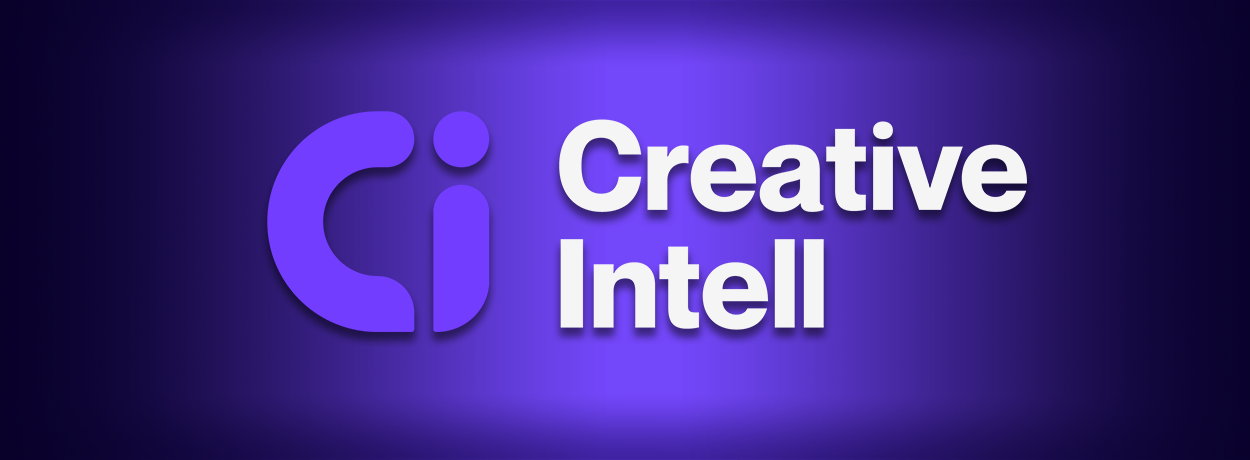
Fortunately, you don’t need to worry about being stuck in that position. Creative Intell has first rate, affordable music agreements available for artists (or producers) just like you.
Creative Intell’s music producer contract template outlines the rights and duties of parties involved in the production, specifies the services to be rendered by the producer, and explains the deliverables and formats for the produced music tracks.
Creative Intell’s templates cover all aspects of the music production process, from the initial idea to the final created music.
If that sounds a little convoluted, don’t worry about it, every Creative Intell contract template comes with an easy-to-follow course that explains exactly how these deals work. So you always understand what you’re signing.
So, with Creative Intell, not only do you get a producer agreement template you can trust to be the best in the business, but you also have animated videos and detailed education showing you exactly how these deals work and what everything in them means and does in actual practice.
You can simply fill in the blanks of the Creative Intell producer agreement template for your own deal, or take the time to study it and learn to negotiate it’s terms that much better.
That’s your call, of course, you already know which option I’d recommend.
Here’s a link to Creative Intell’s Understanding Producer Agreements course with the complimentary producer agreement we’ve been talking about.
Oh, one other thing about Creative Intell contract templates. If you ever have questions about your producer agreement or the specifics of the deal you’re making with your producer (or artist, if you’re a producer), Creative Intell has an entire community of industry experts on hand to help you out; music lawyers, artist managers, major label top execs, established producers, you name it, it’s a big community that’s growing larger by the day.
It costs nothing extra to consult our experts. The CI Community is there to help our members protect themselves in what can sometimes be an exceptionally ruthless business. We want to make sure you get it right.
Final thoughts on Finding and Hiring the Right Music Producer

In conclusion, a music producer serves as a vital collaborator in the artistic process. Whether you’re an emerging artist seeking guidance or an established star looking to further elevate your sales and/or sound, working with the right producer can make all the difference.
From networking within your local music community to leveraging online platforms and resources, there are numerous avenues available to connect you with talented producers who can help bring your music to another level
Just make sure you fully understand the deal you’re making with your producer so there are no ugly surprises in your future. A first-rate producer agreement will be fair to both parties, establish everyone’s rights and responsibilities, and will ultimately work to protect everyone involved in the deal.
When it comes to finding and hiring a music producer, musicians often have many questions. This FAQ section aims to address the most common queries to help you navigate the process smoothly. For a deeper dive into these topics, consider becoming a member of Creative Intell, where you can access comprehensive resources and expert advice.
Frequently Asked Questions About Finding and Hiring a Music Producer
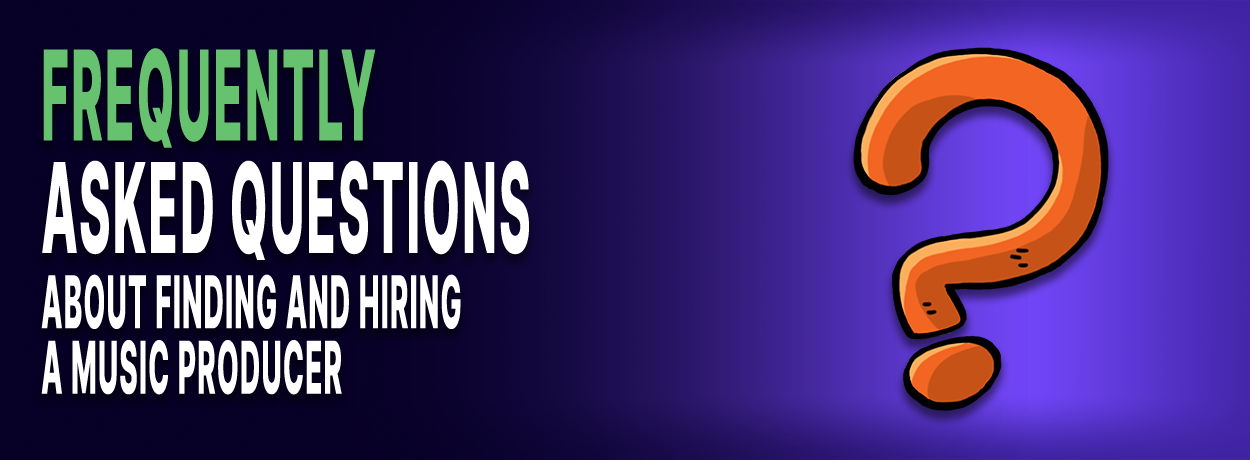
How do I find a music producer?
Start by researching producers who have worked on albums you admire. Reach out via social media or email, and ask for their rates and availability. Websites like SoundBetter can also connect you with producers within your budget.
What should I ask a potential music producer?
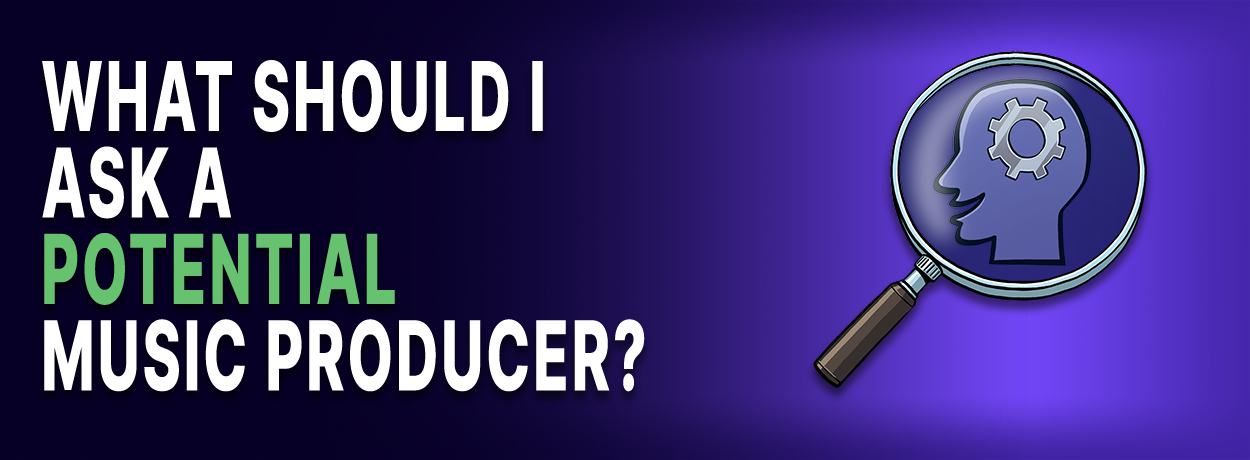
Ask about their rates, what those rates include (e.g., studio time, session musicians, mixing), and their experience with your genre. It's also important to discuss their working style and how they handle creative differences.
Is it better to find a producer to work with or produce my songs myself?
It depends on your skills, goals, and budget. If you're strong in songwriting but not in production, hiring a producer can help bring your vision to life. However, producing yourself can save money and allow for more creative control.
What should be included in a music producer agreement?
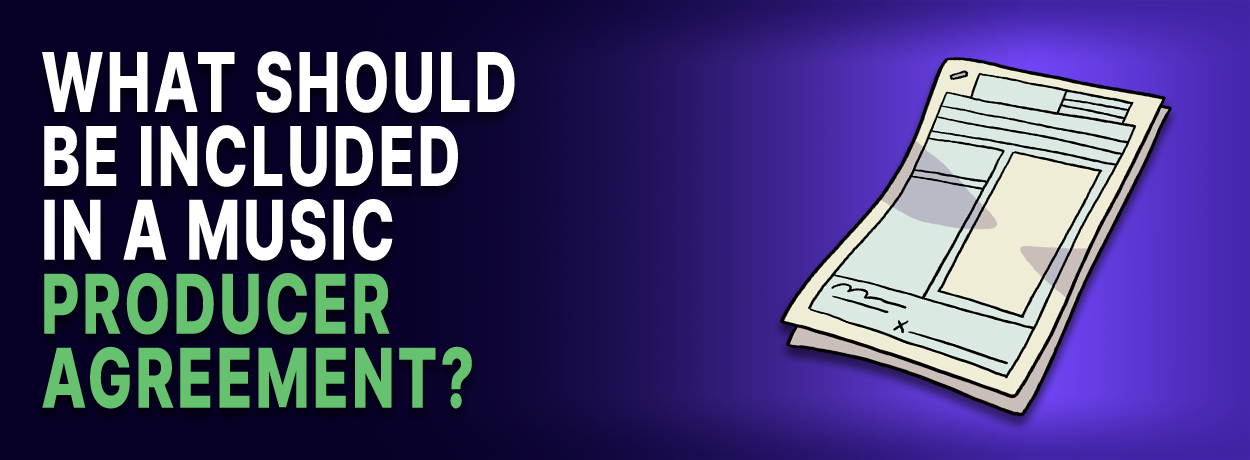
What should be included in a music producer agreement?
Music producer agreement should cover payment terms, project timeline, deliverables, ownership rights, and any additional services like mixing or mastering. It should also outline the producer's creative input and decision-making authority. For more on producer agreements, check the second FAQ section below, or consider taking Creative Intell's Understanding Producer Agreements course for the full picture of these important music contracts.
How are music producers typically paid?
Producers can be paid a flat fee, an hourly rate, or a percentage of the revenue from the music. Some agreements also include royalties. Make sure to clarify payment terms upfront to avoid misunderstandings.
Who owns the rights to the music produced?
Ownership rights can vary. Typically, the artist retains the rights to the music, but the producer may receive a percentage of royalties. This should be clearly outlined in your producer agreement to avoid future disputes.
What is the role of a music producer?
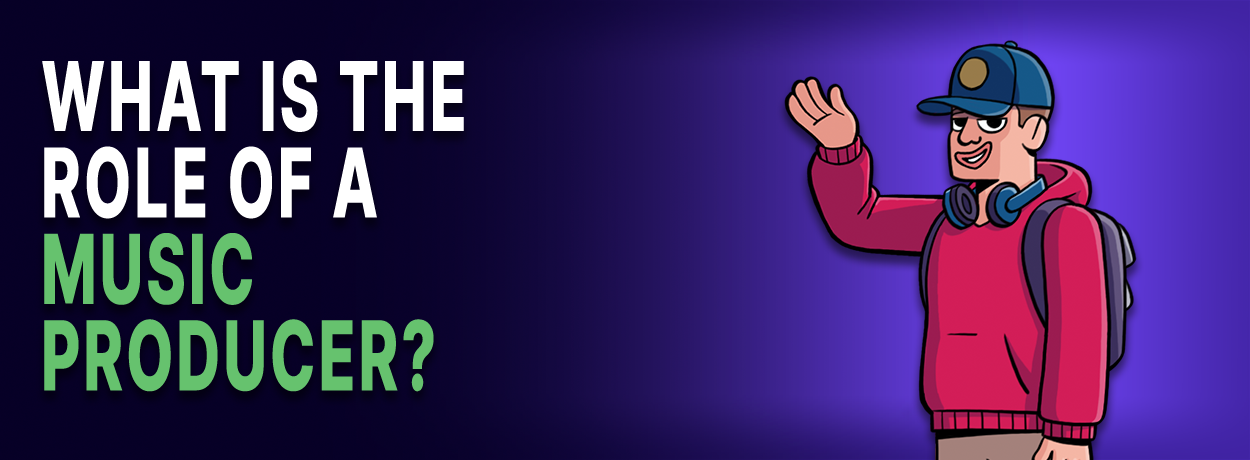
A music producer oversees the recording process, helps shape the sound of the music, and may contribute to songwriting and arrangement. They ensure the final product aligns with the artist's vision while maintaining high production quality.
Should I hire a separate mixing and mastering engineer?
It depends on your budget and the producer's skills. Some producers offer mixing and mastering services, while others specialize in production only. Hiring specialists for each stage can result in higher quality but may increase costs.
How do I communicate my vision to a producer?
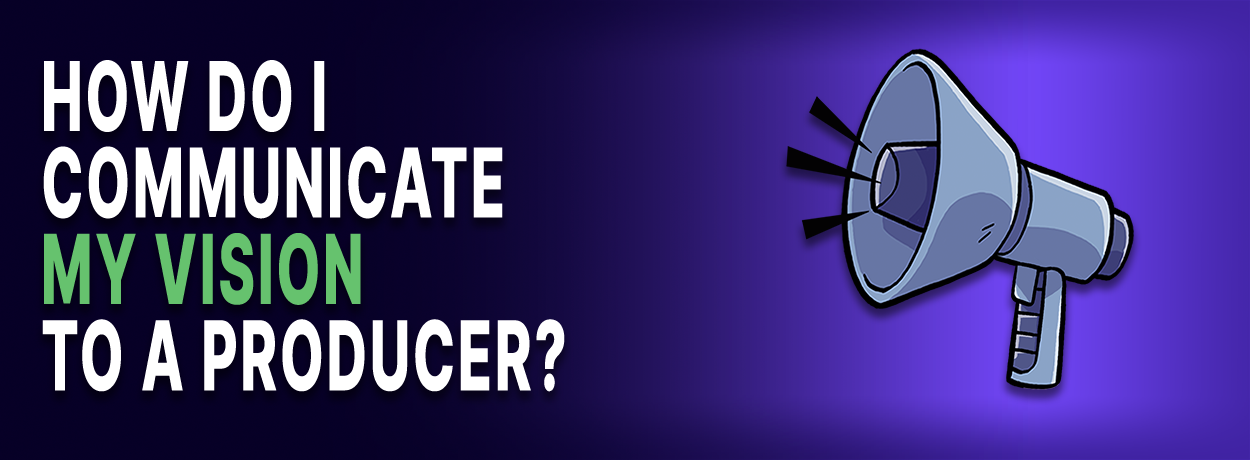
Be clear about your musical influences, desired sound, and any specific elements you want in your tracks. Providing reference tracks can help the producer understand your vision better. Regular communication throughout the project is key.
How do I know if a producer is the right fit for me?
Look at their portfolio and listen to their previous work. Arrange a meeting or call to discuss your project and see if your personalities and creative visions align. Trust and good communication are crucial for a successful collaboration.
What if I can't afford a top-tier producer?
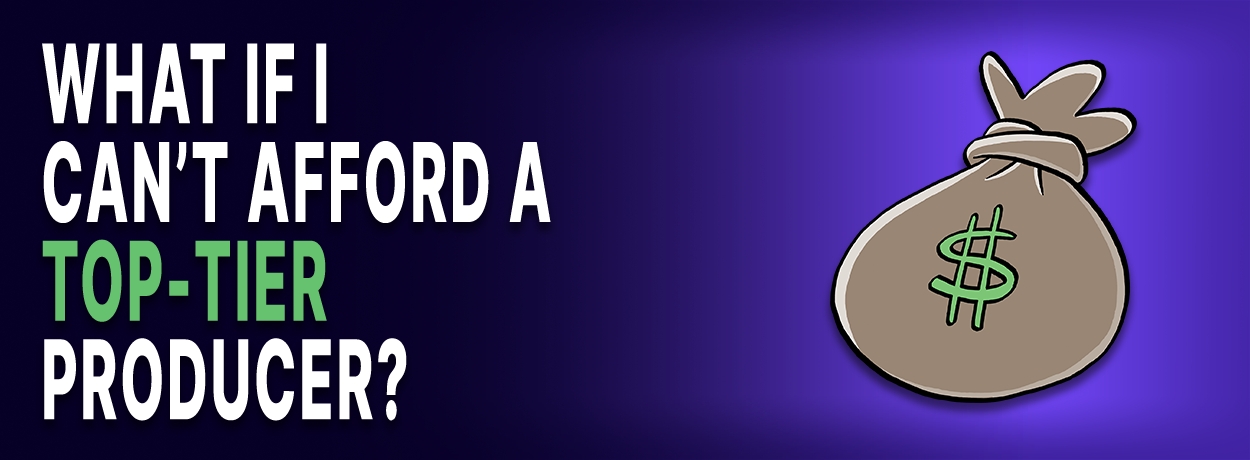
Consider working with a less experienced producer who shows potential or offers lower rates. Alternatively, you can handle some aspects of production yourself and hire a producer for specific tasks to stay within your budget.
Alternatively, you could consider licensing a beat from a beat producer. Some beatmakers also offer mixing and production services alongside their beat packages. For more on beats and beat licenses, take Creative Intell's Understanding Beat Agreements course.
How do I handle creative differences with a producer?
Discuss your expectations and creative vision upfront. If disagreements arise, try to find a compromise that serves the song's best interest. A good producer should respect your vision while offering valuable input to enhance the music.
For more on artist/producer relations, consider becoming a member of Creative Intell, where you can access comprehensive resources and expert advice on this topic and more.
Frequently Asked Questions About Producer Agreements
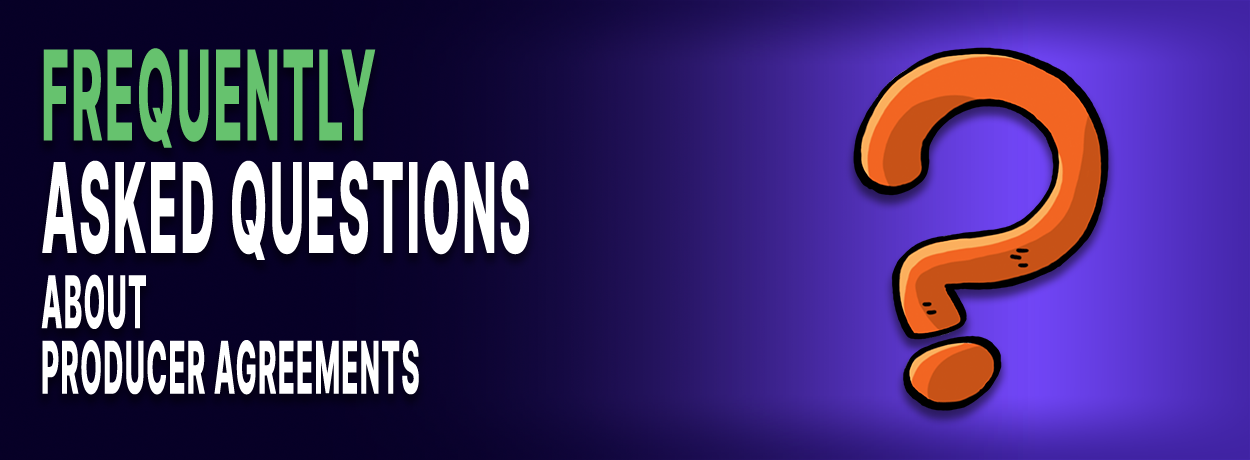
When working with a music producer, it's crucially important that you have a clear and fair producer agreement in place. These agreements outline the terms of collaboration and help prevent misunderstandings.
Remember, once you've found the right music producer and are prepared to hire them, Creative Intell provides customizable top tier producer agreement templates that are designed to be fair to both parties.
Our contract templates come with real-time guidance from our in-house entertainment lawyers and a corresponding course that ensures you fully understand the producer deal you'll be signing.
Below are some of the most common questions musicians have about producer agreements. Of course, answers to all of these questions and more are addressed in considerably more detail in our Understanding Producer Agreements course.
What should be included in a producer agreement?
A producer agreement should, among other details, cover key aspects such as payment terms, project timeline, deliverables, and ownership rights. It should also specify any additional services provided, like mixing or mastering, and outline the producer's creative input and decision-making authority.
How are royalties and ownership typically handled in a producer agreement?
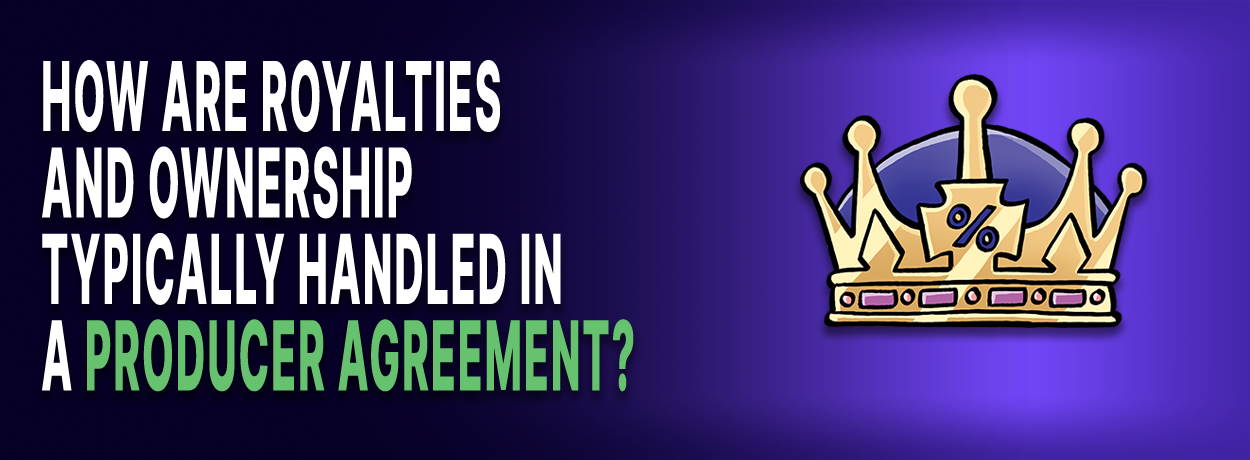
Ownership and royalties can vary, but typically the artist retains the rights to the music while the producer may receive a percentage of royalties. If the producer contributes to songwriting, they might also receive co-writing credits and publishing rights. These details should be clearly outlined in the agreement to avoid disputes.
What is a "work for hire" agreement, and how does it differ from a producer agreement?
A "work for hire" agreement is a contract where the producer provides services for a one-time payment, transferring all rights to the artist. This differs from a standard producer agreement where the producer might retain some rights or receive royalties.
It's important to understand the implications of each type of contract before signing. Work for Hire agreements in the music industry are most widely used when hiring session musicians and other creative collaborators to perform or work on recordings.
For the full picture on this widely used music agreement, take our interactive course on these contracts, Understanding Work-for-Hire Agreements.
Can a producer demand more than a flat fee for their work?
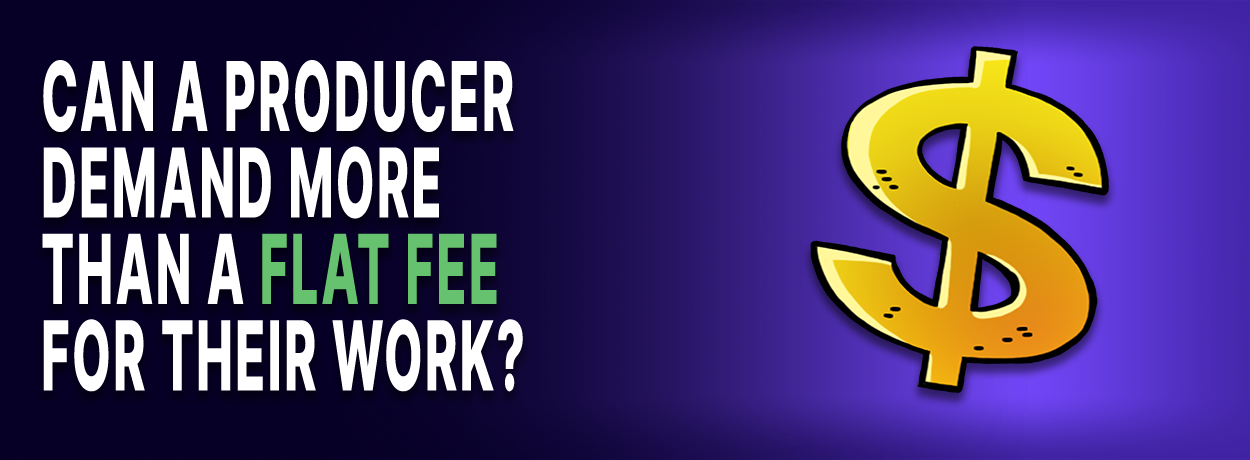
Yes, producers often negotiate for a percentage of the royalties in addition to a flat fee. This is common when the producer plays a significant role in the creative process. It's crucial to discuss and agree on these terms upfront. Creative Intell members have access to a detailed playbook series on different types of producer royalties, how they work and how they are calculated.
How can I ensure that a producer agreement is fair?
To ensure fairness, both parties should review the agreement carefully and consider consulting with an entertainment lawyer. The agreement should protect the interests of both the artist and the producer, clearly outlining responsibilities, rights, and compensation.
If you're an artist or producer concerned the terms in your producer agreement might not be fair, join Creative Intell, take the Understanding Producer Agreements course, and if you still have any questions about your deal, just consult with our in-house team of entertainment lawyers and industry experts for the answers.
Why is it important to have a producer agreement in writing?
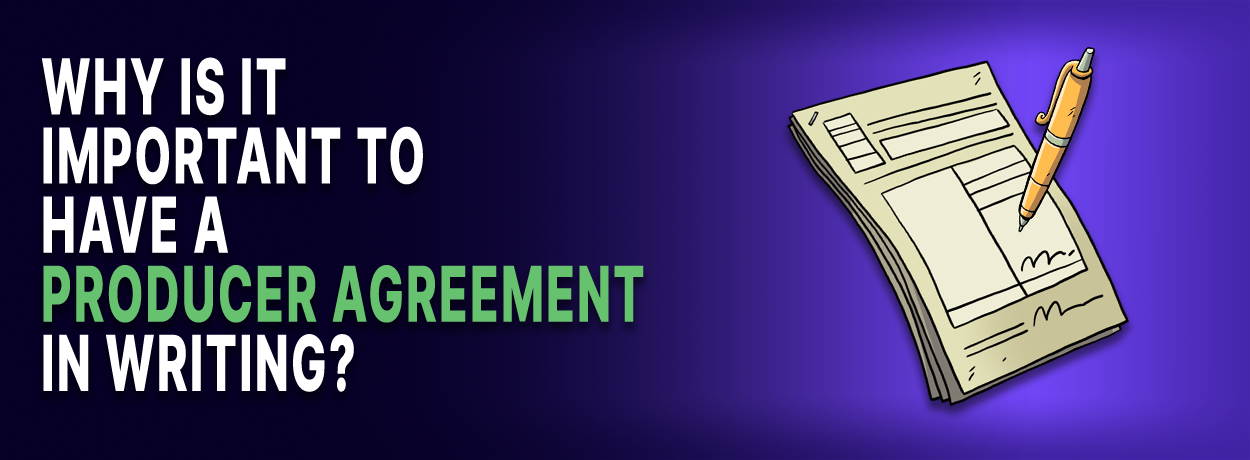
Having a written agreement helps prevent misunderstandings and provides a clear reference for both parties. It outlines expectations and responsibilities, reducing the likelihood of disputes. Even when both parties are perfectly reasonable, a written contract ensures that everyone is on the same page. You simply can't trust your career to casual verbal agreements, the stakes are too high and the relationships too detailed to leave any room for ambiguity.
For more detailed guidance and information on the music business and its various contracts, Creative Intell offers comprehensive resources and templates to help you craft the best agreements for your projects.
Disclaimer language:
Creative Intell is not affiliated, nor associated in any way, with any third parties referenced herein, nor their respective goods or services. Any and all third-party tradenames, trademarks, and/or service marks referenced are used for informational purposes only, and are the exclusive property of their respective trademark owners.


.png?width=721&height=435&name=BLOG_Ads_BottomofArticleAD_PBBeats%20(2).png)
